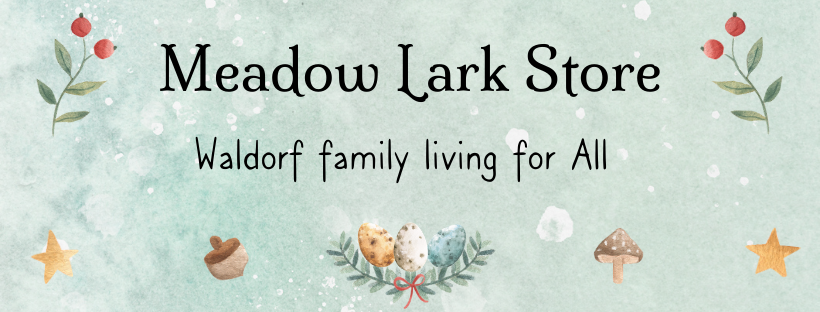You Are Your Child's First Teacher
$ 17.99 USD
This product is sold out
Encouraging Your Child's Natural Development from Birth to Age Six
You Are Your Child’s First Teacher was the first book in America to popularize the insights of Rudolf Steiner, founder of the Waldorf schools, regarding the developmental needs of young children. This revised and updated edition offers new ways for parents and educators to enrich the lives of children from birth to age six.
Some of the most important learning years happen before your child reaches school. In You Are Your Child’s First Teacher, respected Waldorf educator Rahima Baldwin Dancy explains the different stages of learning that children go through from birth to age six, giving you the wisdom and understanding to enrich your child’s natural development in the right way at the right time. Today’s society often pressures us into overstimulating young children with flashcards, workbooks, videos, and electronic gadgets in a well-meaning attempt to give them a head start. But children are not little adults—they learn and grow in radically different ways at different ages, and what we do to help could actually hurt instead.
A trusted classic for over twenty years, this newly revised edition contains updated resources and additional information on discipline, early childhood programs, toilet training, using home life as curriculum, and more. From language and cognitive develop-ment to appropriate toys and nourishing your child’s artistic abilities, Dancy speaks up for a rational approach to child-rearing, one that helps children be children while we fulfill our important role as parents and first teachers.
CHAPTER 1
You Are Your Child’s First Teacher
A Unique Opportunity • Parents’ Dilemma Today • Cultural Dilemmas • Lack of Support for Mothering • Children Are Not Tiny Adults! • The Child’s Changing Consciousness • The Role of the Child’s Individuality • How Children Learn in the First Seven Years • Our Task as First Teachers • Trusting Ourselves • Recommended Resources
CHAPTER 2
Home Life as the Basis for All Learning
Home Life Is Undervalued in Our Culture • Why Is It So Difficult to Be Home with Children Today? • Consciously Creating a Home • Four Levels of Home Life • Home Life as the Curriculum for the Young Child • Recommended Resources
CHAPTER 3
Birth to Three: Growing Down and Waking Up
Growing into the Body • What Is Your Baby Like Between Six Weeks and Eight Months of Age? • Learning to Walk • The Second Year: Mastering Language • The Emergence of Thinking • The Young Child’s Senses • The Emerging Sense of Self • Recommended Resources
CHAPTER 4
Helping Your Baby’s Development
Stimulating and Protecting the Sensitivity of the Newborn • What Is It Like Being with a Newborn? • What Is It Like from Months Two to Twelve? • Physical Development • The Development of Intelligence • Emotional Development • Language Development • Toys for the First Year • Recommended Resources
CHAPTER 5
Helping Your Toddler’s Development
Encouraging Balanced Development • Dealing with Negative Behavior • Encouraging the Development of Language and Understanding • The Beginnings of Imaginative Play • Providing a Rich Environment for Your Toddler • Toys and Equipment • Recommended Resources
CHAPTER 6
Rhythm in Home Life
Creating Rhythm in Daily Life • The Rhythm of the Week • Celebrating Festivals and the Rhythm of the Year • Celebrating Birthdays • Recommended Resources
CHAPTER 7
Discipline and Other Parenting Issues
The Question of Discipline • Why Does Parenting Take So Much Energy? • Can You Work toward Rhythm with an Infant? • What about Weaning? • Crying Babies • What about Going Back to Work? • How Long Do Children’s Senses Need Protecting? • Toilet Training • Separation Anxiety and “Helicopter Parenting” • Cabin Fever • Other Parenting Issues • Recommended Resources
CHAPTER 8
Nourishing Your Child’s Imagination and Creative Play
Three Stages of Play • Experiencing the World through Play • The Importance of Play in Intellectual Development • Ways to Encourage Your Child’s Creative Play • Nourishing Your Child’s Imaginative Play through Stories • Recommended Resources
CHAPTER 9
Developing Your Child’s Artistic Ability
Children’s Drawings and Development • The Experience of Color • Watercolor Painting with Young Children • Metamorphosis in Later Stages of Life • Modeling with Beeswax • Making Things with Your Children • Freeing Your Own Inner Artist • Recommended Resources
CHAPTER 10
Encouraging Your Child’s Musical Ability
Make a Joyful Noise • Music and Cognitive Development • Singing with Your Child • Movement Games and Fingerplays • Pentatonic Music and the “Mood of the Fifth” • What about Music and Dance Lessons? • Recommended Resources
CHAPTER 11
Cognitive Development and Early Childhood Education
Academic vs. Play-Based Learning • Why Not Introduce Academics Early? • The Value of Preschool • Evaluating Early Childhood Programs • LifeWays and Waldorf Early Childhood Programs • LifeWays and Waldorf in the Home • The Value of Mixed-Age Programs • When Is Your Child Ready for First Grade? • What Happens Around Age Seven? • Beginning Academic Work: The Waldorf Approach • What about the Advanced or Gifted Child? • Recommended Resources
CHAPTER 12
Common Parenting Questions: From Television to Immunizations
Preparation for Life • Computers • Balanced Development • Television • Toys • Video Games • Immunizations and Childhood Illnesses • The Sick Child • What Makes Children So Different from One Another? • Religion and Young Children • Recommended Resources
CHAPTER 13
Help for the Journey
Conscious Parenting Is a Process • In Conclusion
- Written by Rahima Baldwin Dancy
- 336 pages
- 6.1" x 9.2"
- Published August 2012, 3rd edition
- Paperback

